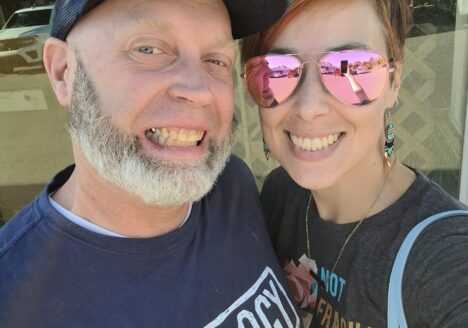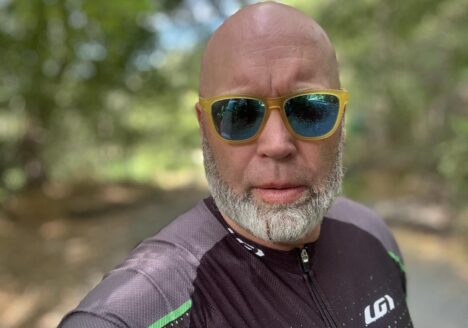
A Coach’s Quote
Most kids get done with their team training and then don’t touch a ball with purpose or intensity until the next time their team gets together. They get to h.s. and wonder why they don’t make the team, or why they aren’t on Varsity or a starter. The answer is usually simple, you didn’t do enough and the other guy did. No matter what team or club you play for it is a fact that you are the difference.
Coach Jeff Ginn
A coaching friend of mine shared the above thought in reference to a video he shared in his facebook feed: video link on FB feed :https://www.facebook.com/Rafael.n.berenice/videos/300051462302367/
The Rabbit Hole Lead Me To These Thoughts:
The challenge is how to focus and develop intrinsic motivation. Sure there are specific examples of the immortals. These elites appear to always have it. The rest of us often mask intrinsic motivation through leveling coping mechanisms – often seen in talent, or people pleasing or pretending to enjoy the desired outcome. I have often observed that poor coaching leans into those with great talent and those without intrinsic immortal motivation or talent lean into great coaches. What I tend to observe is how the relationships between intrinsic and extrinsic motivators aren’t often ‘coached’ or practiced.
I’m grateful to some of the failures that directly introduced me to learning how to manage my expectations. When I made my high school Varsity teams, I knew what the outcome would be – I was able to correlate my effort and performance. There were many coaches that didn’t necessarily teach me, but the few that lead me to stretch myself, taught me to foster a belief in my self and helped me see paths and options to get there. My parents were able to also support me where they had the availability to do so, also.
What I find is that there is a gap and a mismanaged set of unrealistic expectations. The coach and athlete relationship has to be encouraged, fostered, grown and managed. What I imagine that is hard to assess and measure is the depth and strengths or weaknesses. Also, most Coach and athlete relationships are probably rife with unrealistic expectations. The dynamics of communication, relationship, trust, accountabilities suffers just like any other relationship.
“We delight in the beauty of the butterfly, but rarely admit the changes it has gone through to achieve that beauty.”
― Maya Angelou
I really like what I heard the other day: “Big problems are usually a multitude of small problems ignored.” It’s inverse is mostly true, aspirations that become successes are often a multitude of focused tasks completed with purpose. The magic happens when wisdom to the process is also applied.
What about expectations of others?

What was the most difficult for me to navigate as an athlete was the expectations of the things outside of my control. So a few examples:
- Parents
- Friends
- Teammates
- Coaches
- Spectators
- There were and probably are others
Parents
Parents was and is a tough one. I have rarely observed parents objective enough to disassociate their dreams and aspirations that are projected into and onto their offspring. I find for me this takes practice and I am still learning and adapting. I have observed that when I talk to other parents about this conundrum, most don’t even identify with the perspective that their children as athletes have choices or preferences. This is hard when one’s little modeler doesn’t follow the parent’s prescribed dream. Often one the parent wished they had obtained and didn’t. For me, I guess I recall sitting on a chairlift as an 18 year old the winter of 1992 and recognizing that I had met my then dreams. My dreams hadn’t lied to me to that point, and it truly did shape a lot of later maturities I had not yet encountered. Also, going and following off a cliff that day after that recognition taught me a lot about appreciation and choice.
Friends, Teammates, Coaches
I lump these groups into one similar category as they are often sources of feedback. Sometimes they just offer noise. What I mean hear, is value add is driven by my perception and relationships. I observe those that are good at managing proper expectations, determining healthy guidelines and enforcing proper boundaries navigate this space well. Some will ask me, Shane but what about coaches. I have found what I identify as a real coach, often expresses they learned more from those they coach than what they are mentoring. Those to me are the good ones, as they recognize they truly are a feedback source. I learned to frame my expectations from this group appropriately most were my cheer leaders and a source of support. This taught me early on who to surround myself with. If their feedback wasn’t what I wanted to hear, but I valued constructive feedback, as stubborn as I was, over time I’d glean a wisdom and then learned that I could lean into their wisdom to avoid NOISIER situations and feedback I couldn’t discover any value in at all. This aligns with my lesson learned of not all courage has value. Fun Shane story – I used to do anything (physical sports oriented) for 5 bucks – from cliff jumping into rivers doing gainers, or running across the Arc de triomphe round point at peak traffic, to a myriad of other dumb adolescent decisions. Point being some of those choices took courage, but the limit of their true value was the 5 bucks, to which sometimes I had friends that couldn’t or wouldn’t deliver on the 5 bucks. lessons learned. 🙂
Spectators

I learned long ago that the spectators are the consumers of entertainment, talent, skills that I possess. Often its confused that they are the “Masters”. Nope, not in my world. The Coliseum doesn’t always drive things. For me it’s interesting because I find the spectators are the biggest dysmorphic representation of hypocrisy that exists. Example if I may. Barry Bonds, Mark McGuire and Jose Canseco – Let’s throw in cyclist and triathlete Lance Armstrong, too.. They were are bigger than life in their respective sports. These immortals, as it were, had talent, swagger, work etic, drive and unfortunately an AUDIENCE of spectators – The COLISEUM. As each of them stretched boundaries in their areas of greatness, along the line sustaining the gains they were achieving and driven by the insatiable COLISEUM, they each turned to resource beyond acceptable norms. Major League Baseball capitalized on this and evidence suggests the MLB even enabled the each of them with opportunities to not be caught or exposed. And in the end, to satiate the raucous COLISEUM aka the ‘Mob’, each became caught up in what was required to keep them entertained. In each of their scenarios – they were eventually exiled by those that gave the perceived demand of entering into non-normative positions which ultimately failed the athlete(s). They were stripped of accolades. This is why I feel that I cannot listen to this noise. I do my thing, and let the spectators do them, and I will do me. My hope is that I have the integrity to face and encounter and face – especially in my weakest moments and if I fail. So that I do not become prey to unhealthy levels of shame or guilt or even worse, self-inflicted toxicity.

I wasn’t sure how far I would chase this rabbit hole. For me I think it is more about where does my motivation come from. While I can spend a lot of time observing and sharing, I prefer to invest my time on me and practicing and experimenting. This in in the effort of bettering myself first. I have learned from sad experience, too often, that unsolicited advice is rarely appreciated. So, as I have learned from that observation, I choose to practice offering advice and feedback when solicited, unless safety is at risk.
Triathlon Thoughts

I tend to apply this in my own areas of influence in my hobby of triathlon. While this is a hobby, it is a space where i can experiment things in relative isolation and specific to me. As I practice with various lessons learned, or ideas I find useful. I then can determine what will I allow to transfer into other vectors of life. While most of my motivators are intrinsic, I no longer truly fall prey to comparisons. In triathlon I observe a lot of folks get sucked into the trap of more than me. I find that there are many factors to why I or others slip and fall prey to the cycle, but it happens. I write this in hopes the next time I fall and need individually offered self-grace, I can look back to this and navigate that space better. I mentioned in other posts where I let myself become a ‘chest-thumping-look-at-me-I-am_a-triathlete’ MONSTER. Ironic thing was – only I cared. The curious thing that I wasn’t recognizing that I was in the trap and even those with the best intentions to alert me to my problem – I wasn’t actively seeking the feedback, so I took it as noise and discarded it.
This applies to triathlon in many ways for me. As a self-coached athlete I am navigating the triathlon space many ways in an effort to be learned model, and I often get it mostly right but also wrong. gain, another example of where the conundrum of small differences can drive folks into different and often opposing camps. Instead of letting it be divisive – I am actively trying to become better in this area of life. When I hear things I use this Bruce Lee approach – I trade out combat for mindset or approach or practice:

Story Time – This is and Example of Controlling the space between Stimulus and Response

Simu Liu, the star of Shang-Chi posted this statement yesterday about following his dreams after being fired from Deloitte 10 years ago – I want you to soak in every single word.
“Ten years ago to the day, I was led into my managing partner’s office at Deloitte and told that they were terminating my employment effective immediately. A lady from HR and a security guard escorted me back onto the floor in front of the entire open concept office. It was so quiet you could hear a pin drop. Nobody moved, offered a whisper of encouragement or even looked in my direction. I fought back tears of humiliation, grabbed my things, and never looked back. Ten years ago I thought my life was over. I had wasted countless time and money that my family had invested in me. Years of schooling, gifted programs, trying to live up to my parents’ expectations. It all came crashing down in an instant. To Paul Gibbon and the offices of Deloitte Toronto; sincerely, honestly, THANK YOU. You did for me what I never had the courage to do myself; you destroyed a life that I was building for someone else, so that I could finally begin to build a life for me.”
“The knowledge of what is mine and what is not mine, what I can and cannot do. I must die. But must I die bawling? I must be exiled; but is there anything to keep me from going with a smile, calm and self-composed?”
― Epictetus




